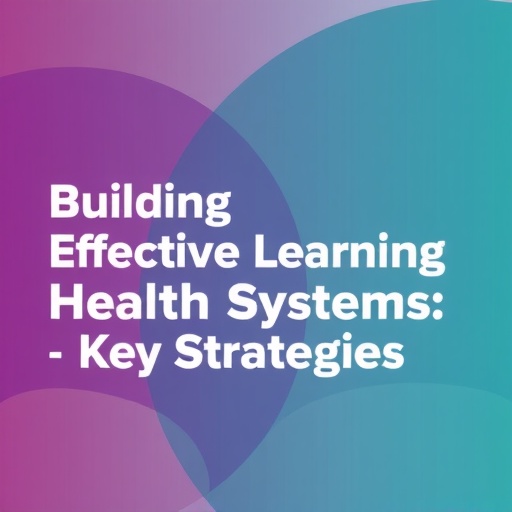PROTECT YOUR DNA WITH QUANTUM TECHNOLOGY
Orgo-Life the new way to the future Advertising by AdpathwayIn a recent meta-analysis published in Advances in Therapy, researchers Zheng, Mojebi, and Tang, alongside their colleagues, have unveiled significant insights into the survival outcomes of patients suffering from resectable locally advanced head and neck squamous cell carcinoma (LA-HNSCC). This groundbreaking research aims to delineate the correlation between event-free survival (EFS) and overall survival (OS), a comparison that has historically garnered limited attention in oncological studies. The implications of their findings are poised to reshape clinical approaches and prognostic assessments for this challenging group of cancer patients.
Head and neck squamous cell carcinoma represents a formidable adversary in oncology, characterized by its complex pathophysiology and the heterogeneity of its clinical outcomes. The challenge of managing LA-HNSCC is compounded by the necessity of striking a balance between curative surgery and the potential for significant morbidity. The employment of novel therapeutic paradigms, including chemoradiation and immunotherapy, has introduced new dimensions to treatment strategies. However, understanding the interplay between EFS and OS remains crucial for enhancing patient prognostication and tailoring individualized treatment courses.
As the analysis unfolds, researchers meticulously sifted through an array of numerous studies to compile a robust dataset. Their integration examined various patient cohorts, emphasizing the criticality of disease staging, treatment modalities, and the presence of comorbid conditions. This meta-analysis not only adds a quantitative lens to previous qualitative assessments but also substantiates the essential role that EFS plays as an indicator of OS among patients with LA-HNSCC.
EFS serves as a pivotal metric in evaluating long-term outcomes post-therapy, especially in cancers where recurrence significantly impacts life expectancy and quality of life. The evidence presented by Zheng and colleagues indicates a strong correlation between longer event-free intervals and improved overall survival rates. This relationship underscores the necessity for oncologists to prioritize the management of early events post-treatment to enhance patient survival. Such findings could shift clinical paradigms, driving the adoption of strategies that focus on minimizing recurrence events.
Moreover, the analysis sheds light on the different factors influencing the EFS-OS correlation. The authors meticulously discuss variables such as tumor grade, lymph node involvement, and the extent of resection. The insights derived from their research could guide clinicians in identifying high-risk patients who may require more aggressive surveillance and treatment protocols. In particular, those with critical nodal metastases or residual disease post-surgery may need optimized intervention strategies to forestall the progression of the disease.
The implications of this meta-analysis also extend to the development of clinical practice guidelines. By demonstrating that prolonging EFS can translate to better OS outcomes, the authors advocate for the incorporation of EFS as a key performance indicator in clinical trials. This passionate endorsement calls for a deeper integration of survival metrics in clinical decision-making frameworks, providing a nuanced understanding that can potentially transform patient management.
Oncologists, researchers, and policymakers alike can draw from this evidence to reinforce the significance of continuous monitoring of EFS in clinical settings. Such practices not only promote a proactive approach to cancer management but also facilitate timely interventions that could markedly improve patient survival rates. This research offers a clarion call for the establishment of multidisciplinary teams aimed at enhancing the continuum of care for patients with LA-HNSCC.
The methodology of this study stands out, as the researchers conducted an extensive and systematic review of existing literature. By employing strict inclusion and exclusion criteria, they ensured that only high-quality studies contributed to their analysis, thereby bolstering the reliability of their conclusions. The use of advanced statistical methods further strengthened their findings, offering robust evidence to support the proposed relationships.
As the discourse surrounding cancer treatments evolves, studies like this one are instrumental in informing future research agendas. The intricate relationship between EFS and OS in LA-HNSCC may pave the way for innovative treatment breakthroughs and a better understanding of cancer biology. In illuminating the pathway from event-free intervals to overall survival, this meta-analysis invites further exploration and investigation into the underlying biological mechanisms at play.
Another critical aspect of this research is its potential to influence patient outcomes through shared decision-making. With clear evidence highlighting the tangible benefits of improved EFS, patients can engage more meaningfully in treatment choices, understanding the significance of managing their cancer proactively. This empowerment may foster adherence to treatment plans and lifestyle adjustments that are vital during the recovery phase.
In conclusion, the findings put forth by Zheng and colleagues not only elevate the discourse surrounding LA-HNSCC survival metrics but also lay a foundation for future research endeavors. Their meta-analysis emphasizes the necessity of incorporating EFS into survival discussions, which could prove transformative for patients facing this daunting diagnosis. As cancer research continues to advance, such insights will play a pivotal role in redefining prognostic tools and treatment strategies, ultimately contributing to improved patient outcomes.
Ultimately, the revelations from this study embody a pivotal moment in oncology, reaffirming the necessity of understanding survival metrics to enhance patient care. It encapsulates the fervent hope that with persistence and innovation, the medical community can continue to make strides against head and neck cancers, improving the lives of countless individuals battling this disease.
Through ongoing research efforts, it is imperative that the community remains vigilant in their pursuit of knowledge, capitalizing on studies like this to guide practices that will pave the way for breakthroughs in treatment and patient care.
Subject of Research: The correlation between event-free survival and overall survival in patients with resectable locally advanced head and neck squamous cell carcinoma.
Article Title: Meta-analysis to Investigate the Correlation Between Event-Free Survival and Overall Survival in Patients with Resectable Locally Advanced Head and Neck Squamous Cell Carcinoma.
Article References: Zheng, D., Mojebi, A., Tang, Y. et al. Meta-analysis to Investigate the Correlation Between Event-Free Survival and Overall Survival in Patients with Resectable Locally Advanced Head and Neck Squamous Cell Carcinoma. Adv Ther (2025). https://doi.org/10.1007/s12325-025-03351-z
Image Credits: AI Generated
DOI: 10.1007/s12325-025-03351-z
Keywords: head and neck cancer, squamous cell carcinoma, event-free survival, overall survival, meta-analysis, treatment outcomes.
Tags: challenges in managing head and neck cancerchemoradiation and immunotherapy in cancerclinical approaches to LA-HNSCCcorrelation between EFS and OSevent-free survival in head and neck cancermeta-analysis of cancer survival outcomesoverall survival in LA-HNSCCpatient cohort studies in oncologyprognostic assessments in oncologyresectable locally advanced head and neck cancertreatment strategies for head and neck squamous cell carcinoma


 3 hours ago
8
3 hours ago
8





















 English (US) ·
English (US) ·  French (CA) ·
French (CA) ·